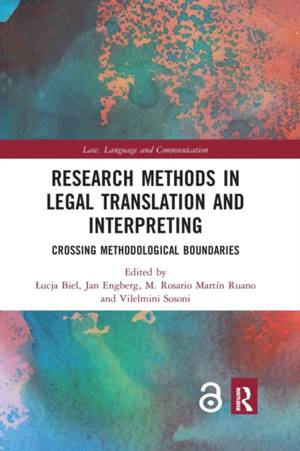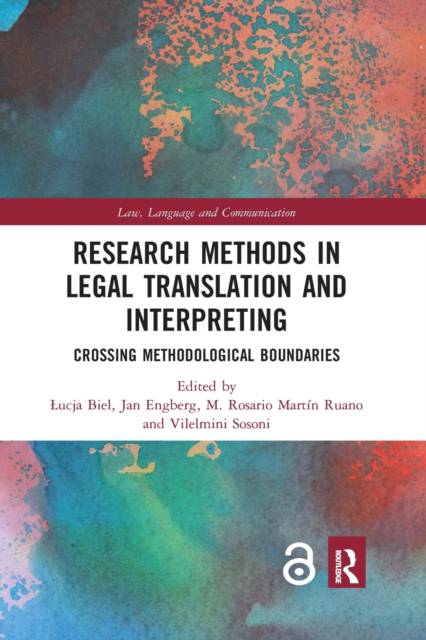
- Afhalen na 1 uur in een winkel met voorraad
- Gratis thuislevering in België vanaf € 30
- Ruim aanbod met 7 miljoen producten
- Afhalen na 1 uur in een winkel met voorraad
- Gratis thuislevering in België vanaf € 30
- Ruim aanbod met 7 miljoen producten
Research Methods in Legal Translation and Interpreting
Crossing Methodological Boundaries
Omschrijving
The field of Legal translation and interpreting has strongly expanded over recent years. As it has developed into an independent branch of Translation Studies, this book advocates for a substantiated discussion of methods and methodology, as well as knowledge about the variety of approaches actually applied in the field. It is argued that, complex and multifaceted as it is, legal translation calls for research that might cross boundaries across research approaches and disciplines in order to shed light on the many facets of this social practice. The volume addresses the challenge of methodological consolidation, triangulation and refinement. The work presents examples of the variety of theoretical approaches which have been developed in the discipline and of the methodological sophistication which is currently being called for. In this regard, by combining different perspectives, they expand our understanding of the roles played by legal translators and interpreters, who emerge as linguistic and intercultural mediators dealing with a rich variety of legal texts; as knowledge communicators and as builders of specialised knowledge; as social agents performing a socially-situated activity; as decision-makers and agents subject to and redefining power relations, and as political actors shaping legal cultures and negotiating cultural identities, as well as their own professional identity.
Chapter 2 of this book is freely available as a downloadable Open Access PDF under a Creative Commons Attribution-Non Commercial-No Derivatives 4.0 license.
https: //tandfbis.s3-us-west-2.amazonaws.com/rt-files/docs/Open+Access+Chapters/9781138492103_oachapter2.pdf
Specificaties
Betrokkenen
- Uitgeverij:
Inhoud
- Aantal bladzijden:
- 232
- Taal:
- Engels
- Reeks:
Eigenschappen
- Productcode (EAN):
- 9780367730000
- Verschijningsdatum:
- 18/12/2020
- Uitvoering:
- Paperback
- Formaat:
- Trade paperback (VS)
- Afmetingen:
- 156 mm x 234 mm
- Gewicht:
- 331 g

Alleen bij Standaard Boekhandel
Beoordelingen
We publiceren alleen reviews die voldoen aan de voorwaarden voor reviews. Bekijk onze voorwaarden voor reviews.








